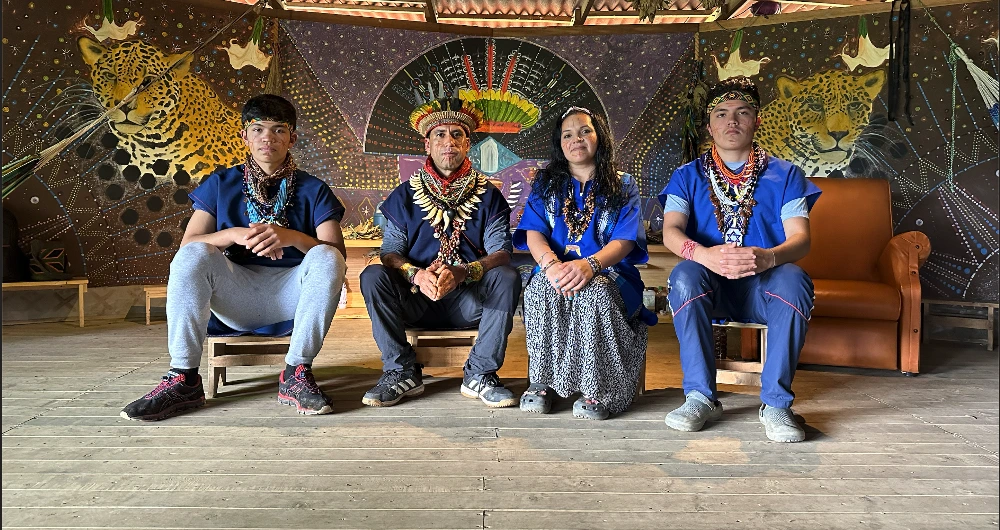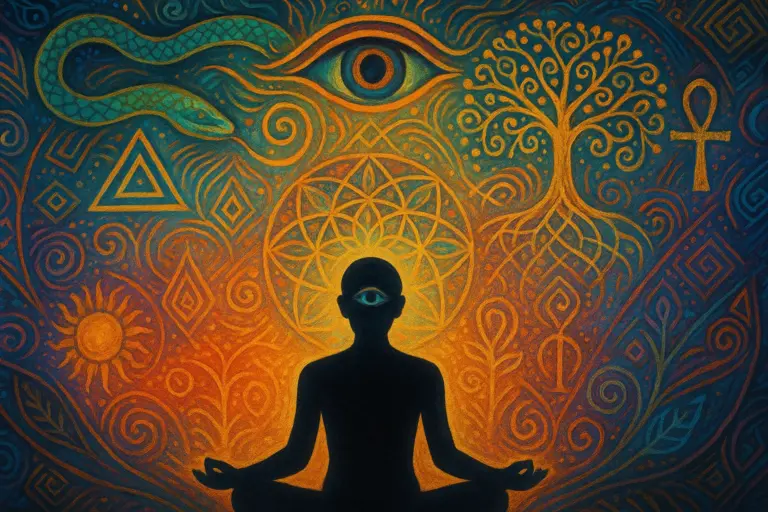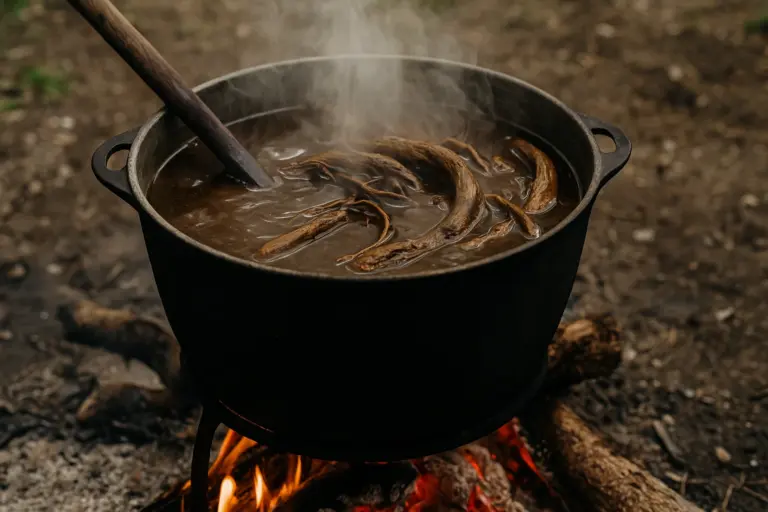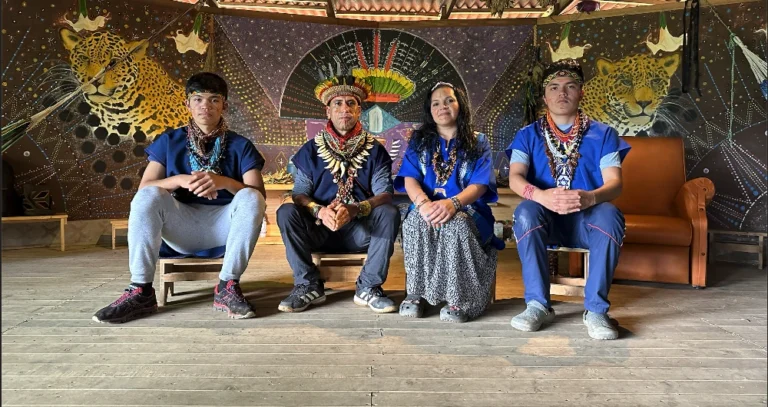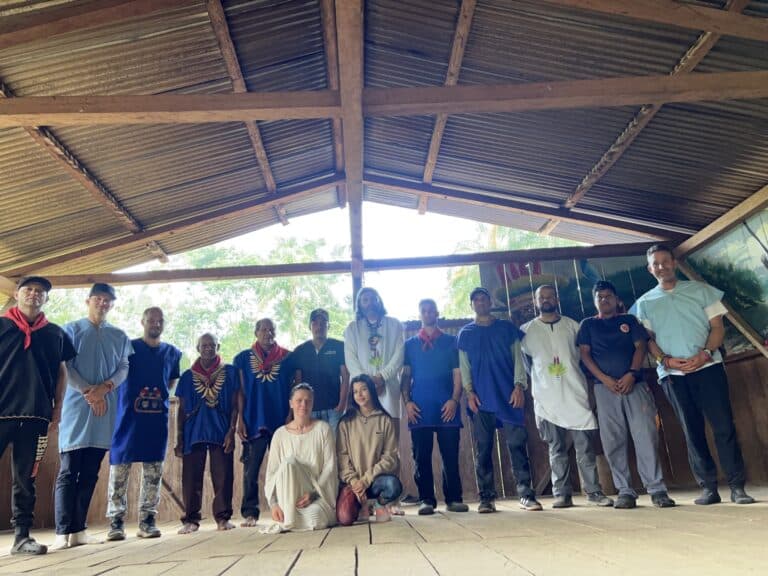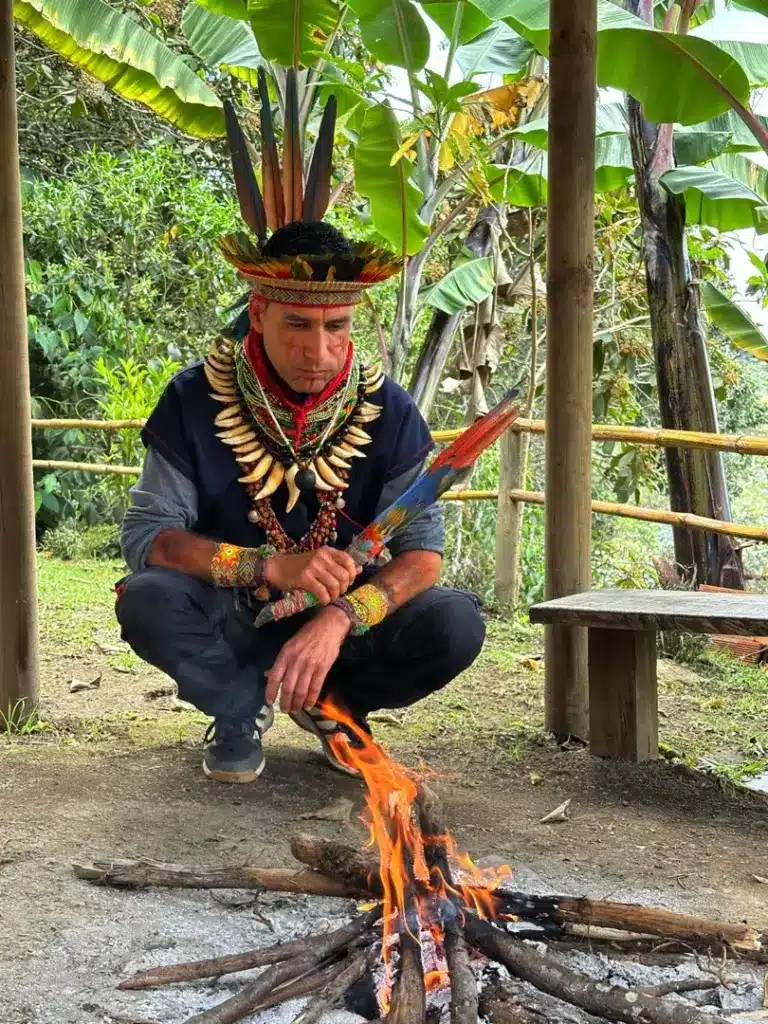Is Ayahuasca Safe? A Complete Guide to Risks, Benefits, and Best Practices
Most people asking whether ayahuasca is dangerous are looking for a simple answer. Safe or unsafe. But that’s already the wrong question. Ayahuasca doesn’t become risky because of the medicine alone. It becomes risky because of who drinks it, how it’s held, and what’s ignored beforehand. Miss one of those, and things can go very wrong.
- The brew itself – its ingredients, preparation, and dosage.
- The person drinking – their physical and mental health.
- The context – the screening, facilitation, and integration process.
When all three are aligned, the risk of serious harm appears low. When any one is neglected, risks rise sharply. In this article, we break down the science, the risks, and how to approach ayahuasca as safely as possible.
What Is Ayahuasca?
Ayahuasca is a traditional Amazonian brew made by boiling the Banisteriopsis caapi vine with leaves from a DMT-containing plant, usually Psychotria viridis (chacruna). The combination allows the DMT to become orally active, producing visions, deep emotional release, and often physical purging. When prepared traditionally and consumed in the right context, ayahuasca is safe for many people, but it requires careful preparation and guidance.
Indigenous peoples have used it for centuries as a healing and spiritual tool. In Colombia, Brazil, and Peru, ayahuasca ceremonies are often led by trained shamans within a structured ritual context.
Learn more about our traditional approach to yagé at Camino al Sol →
Common Physical Effects
- Nausea, vomiting, diarrhea (“la purga”) – seen as cleansing in traditional contexts.
- Increased heart rate and blood pressure – usually temporary, but risky for those with cardiovascular disease.
- Sweating, shaking, changes in body temperature – typically short-lived.
While most people tolerate these effects, anyone with heart problems, uncontrolled high blood pressure, or other serious health issues should avoid ayahuasca.
Psychological Effects
Ayahuasca’s mental and emotional effects can be profound:
- Intense introspection and re-living of past experiences, sometimes including trauma.
- Emotional extremes, from euphoria to deep fear or sadness.
- Visionary imagery, often symbolic and highly personal.
These experiences can be healing, but they can also be destabilizing—especially for people with certain psychiatric conditions.
Absolute psychological contraindications include:
- Personal or family history of psychosis or schizophrenia.
- Bipolar disorder.
- Severe, unstable anxiety disorders.
Read more about preparing for your first ceremony →
Dangerous Interactions
Ayahuasca contains natural MAO inhibitors, which can dangerously interact with certain substances:
- SSRIs, SNRIs, and other antidepressants – risk of serotonin syndrome, which can be fatal.
- Stimulants, MDMA, cocaine – risk of cardiovascular collapse or severe psychiatric reactions.
- Tyramine-rich foods (aged cheeses, cured meats, fermented soy, red wine) – risk of hypertensive crisis.
Always follow the pre-ceremony dieta and be transparent during medical screening. This is why checking whether ayahuasca is safe for you personally is critical before attending a ceremony.
The Role of Context: Set, Setting, and Facilitation
Research and tradition agree: context determines safety.
- Set – your mindset, emotional readiness, and intentions.
- Setting – the physical and social environment of the ceremony.
- Facilitator – their skill, ethics, and ability to handle emergencies.
At Camino al Sol, we maintain strict safety protocols, including medical screening, experienced facilitation, a supportive ceremonial environment, and structured integration.
Read how we ensure safety at our retreats →
Is Ayahuasca Legal in Colombia?
In Colombia, ayahuasca—locally known as yagé—is legal when used within traditional indigenous or spiritual contexts. The Colombian Constitutional Court has recognized its cultural and spiritual significance, protecting its ceremonial use under religious freedom laws. This legal protection ensures that authentic retreat centers, like Camino al Sol, can safely and openly host ceremonies, provided they follow ethical guidelines and work with recognized indigenous healers. This cultural protection is one reason many seekers find ayahuasca safe to experience here when done with recognized indigenous healers.
Integration: Where the Real Work Happens
An ayahuasca ceremony doesn’t end when the visions fade. Without proper integration, insights can be lost—or confusion and distress can linger.
Integration support includes:
- Post-retreat sharing circles.
- Journaling and reflection.
- Continued contact with facilitators.
- Professional counseling when needed.
Potential Benefits Backed by Science
Emerging research suggests ayahuasca may help with:
- Depression, even in treatment-resistant cases.
- Post-traumatic stress disorder (PTSD).
- Addiction to substances like alcohol and cocaine.
- Increased mindfulness, openness, and life satisfaction.
While promising, these benefits are not guaranteed and should never overshadow the need for safety. A 2019 Study study in the journal Psychopharmacology found that ayahuasca use in controlled, ceremonial contexts was associated with significant improvements in mental well-being
Read one woman’s transformative weekend experience →
Key Safety Checklist Before Drinking Ayahuasca
- Complete medical screening with honest disclosure.
- Stop all contraindicated medications with proper washout time.
- Follow the dietary guidelines before and after the ceremony.
- Choose a reputable retreat with experienced, ethical facilitators.
- Plan for integration after the retreat.
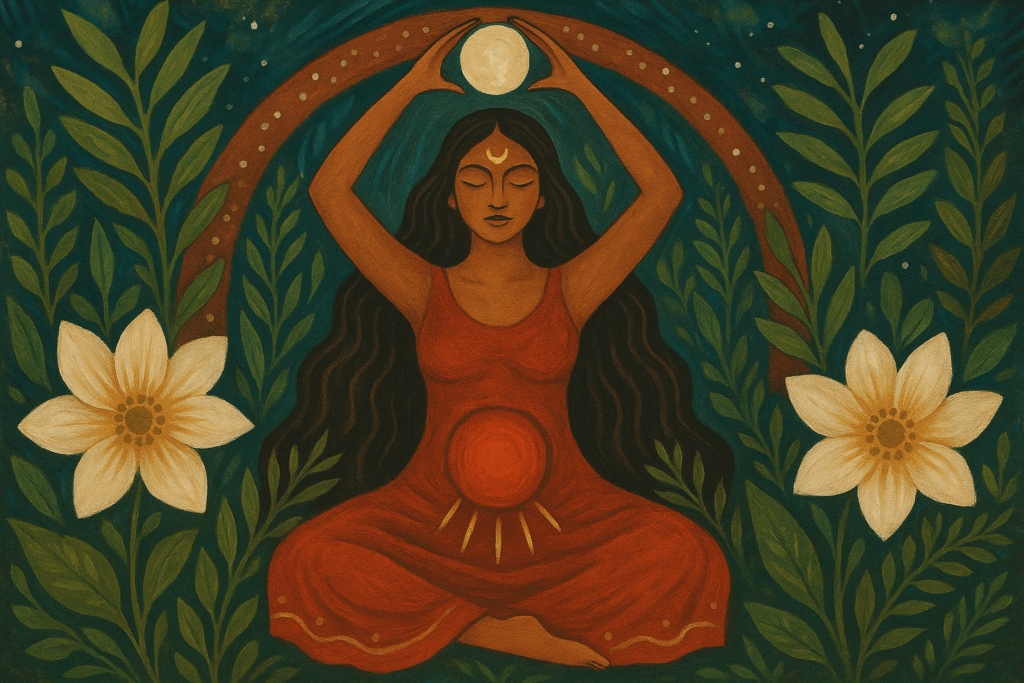
Final Word: Is Ayahuasca Safe?
Ayahuasca can be relatively safe for healthy individuals, and knowing what makes ayahuasca safe will help you approach the experience with confidence. But it can be dangerous—even deadly—if combined with the wrong medications, taken by someone with contraindications, or served in unsafe conditions.
At Camino al Sol, our mission is to honor the tradition of yagé while applying the highest standards of safety, ethics, and care.
FAQ
Is Ayahuasca Dangerous?
It can be dangerous if combined with contraindicated medications or used in unsafe settings. In proper contexts with screening, it’s generally considered low-risk for healthy individuals.
What Should I Do Before Drinking Ayahuasca?
Follow the dieta, stop any incompatible medications under medical guidance, and set clear, respectful intentions.
Can Ayahuasca Interact with Prescription Medications?
Yes—especially antidepressants, stimulants, and certain blood pressure medications. Always disclose your medical history.

